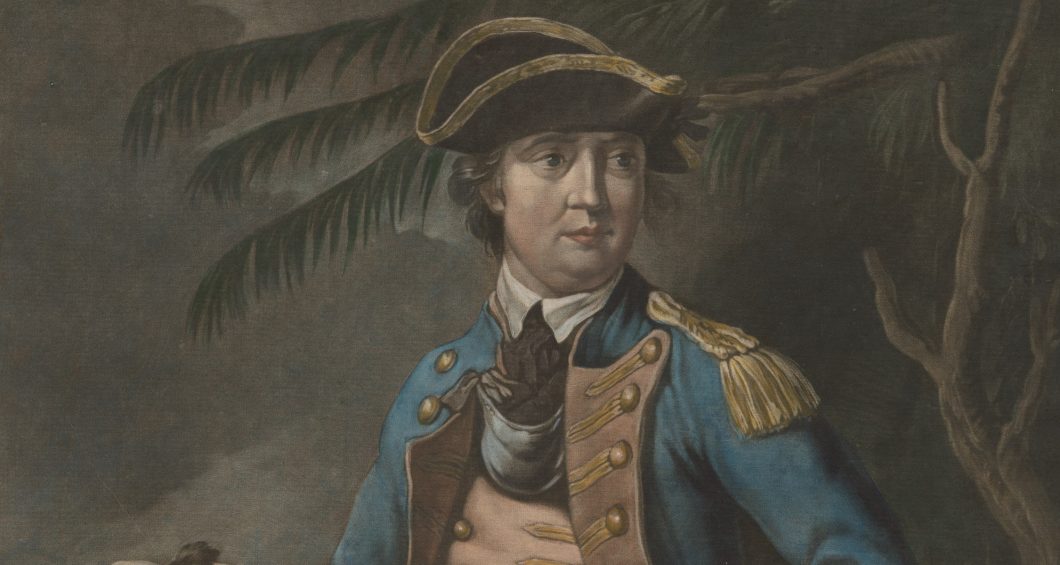Formerly the world’s bastion of self-government, the United States has become a cesspit of self-love.
Becoming America's Greatest Villain
Benedict Arnold. There are few other names that have inspired such immediate and hostile reactions in the hearts of Americans. Even if you don’t know the full history, he has become synonymous with villainy and betrayal. The once-heroic American general’s 1780 treason has marked him ever since—at best as Judas and at worst as Satan. But what if this malevolent reputation was not so much earned by Arnold’s singular actions, as it was a creation and manifestation of jealousy over his military successes and the “bitter animosities within the patriot party”? The Tragedy of Benedict Arnold: An American Life contends that Arnold’s infamy should be regarded as far from unique and rather a result of personal animosity originating from within the Continental Army and Congressional leadership. “The greater his fame,” author Joyce Lee Malcolm asserts, “the greater their determination to destroy his reputation.”
Malcolm seeks to understand Arnold and combat the “two-dimensional caricature” of his being “wicked, self-serving, and greedy.” She asks, despite others’ questionable conduct and betrayals (such as Benjamin Church), why is it that “Arnold alone bears the mark of Cain”? Challenging the long-held myopic view, the book’s subtitle “An American Life” hints at a central theme: that Arnold was no more flawed than many other American Patriots. Arnold’s fate could have befallen any of the generation if faced with similar circumstances. Thus, the American Revolution emerges as a civil war—militarily, politically, and personally. In attempting to “reevaluate” Arnold (and to a lesser extent his wife Peggy Shippen Arnold), Malcolm seeks to uncover “why a man who had risked everything for the patriot cause took that desperate decision to turn against it.”
The Arnold saga is so gripping that an author’s best course is to frame the events and let the narrative follow the arc of the turncoat general’s life, with all of its inherent drama and character struggles. In this respect, The Tragedy of Benedict Arnold is a well-written and well-conceived biography that entertains, informs, and contextualizes the Revolution. Attempting to replicate Arnold’s ascent for her readers, Malcolm’s pre-treason treatment is masterful. The book builds up Arnold in a way that mirrors the meteoric rise of his reputation during his own life. Arnold’s turn can’t be truly shocking unless his status is undeniably cemented, even if begrudgingly.
Arnold’s heroism is on display: the valor won on the march to Quebec, his skill on Lake Champlain’s shores, and his personal bravery charging the field at the Battle of Saratoga. Despite his predilection for challenging men to duels, Malcolm attempts to show Arnold as unlike the “vicious individual” he has often been portrayed as. She highlights his humanity, even during battle, showing mercy to a German soldier who had shot him in the leg at Saratoga, as he implored his men “Don’t hurt him, he did but his duty; he is a fine fellow!” Yet almost immediately, Malcolm points to Arnold detractors (and resulting court martials) emerging at every turn, from Ethan Allen and General Horatio Gates to Joseph Reed and the Continental Congress. Still, the author hints at the danger of Arnold’s inability to play politics.
Aside from presenting a nuanced Arnold, the book is particularly effective at highlighting the political maneuvering and personal tensions rampant throughout the army and the deteriorating civilian-military relationship. Malcolm successfully posits that Arnold was often simply a surrogate for hostility from officers, like Gates, leveled at other high-ranking officers such as Philip Schuyler and George Washington. In particular, Malcolm deserves to be commended for making the concept of honor an essential theme.
It is impossible to accurately tell Arnold’s story without engaging with honor, as this ideal guided his life since his youth in Connecticut. It was the core of his self-worth. While most of his patriot contemporaries viewed honor as ethical service to the nation, Arnold saw it as personal reputation. Malcolm makes this abundantly clear when she states “Arnold, looking back later, was painfully aware it was a single-minded drive for honor and respect which shaped his entire life that brought him to a court-martial table. But what more worthy passion could a man have?” Arnold’s personal honor was the driving force that demanded he respond to any and all slights to his reputation. In having his name marred by accusations, his talents went unrewarded by delayed promotions (the book does include a slight error that Arnold was given seniority over Benjamin Lincoln) and his deeds omitted in official correspondence. Malcolm contends that Arnold was “like most men of his time and rank, keenly jealous of his personal honor.”
The central question of any Arnold book is always: what caused his treason? Unlike Nathaniel Philbrick’s anachronistic focus on money in Valiant Ambition, Malcolm presents Arnold as deeply conflicted, but concludes that his turn was ideological. For Malcolm, his honor was at stake (perhaps the most accurate interpretation) and it was irreparably wounded by a court martial verdict and its sentence of a public reprimand by General Washington. She also points to his professed desire to spare America continued bloodshed as a reason for the betrayal. Similarly to Stephen Brumwell’s version of Arnold in Turncoat, Malcolm’s Arnold views himself as a hero (although Malcolm pays less attention to his anger over the French Alliance of 1778). But in focusing solely on personal honor, she misses the patriot support of national honor, which focused on the greater good of the nation rather than solely on the individual’s reputation. Thus Malcolm is unable to rectify what was different about Arnold. She states, “when he joined the British side he forfeited that honor forever,” but in his mind Arnold defected to preserve his honor against the dishonorable slights of his fellow officers and Congress.
Malcolm convincingly argues for Arnold’s internal conflict over abandoning the American cause. However, in her efforts to present a tragedy, she downplays the significance of Arnold’s treason. She points to other patriots who were guilty (or potentially guilty) of treason, but doesn’t adequately address the scale of his betrayal in attempting to surrender West Point. This location was a pivotal fort that guarded the Hudson River and prevented a division of New England. There are even theories that Arnold had plans to aid the British in kidnapping Washington as part of turning over West Point. Furthermore, the fact that Arnold was “reckoned the most brilliant officer on either side” makes the stakes that much higher. If the guilty party wasn’t Arnold, the danger and fear wouldn’t have been as potent. The book tends to absolve Arnold a bit too much due to the “lobbying” against him, but the choices were still his to make. After all, Arnold became a “disgrace” and was despised by both the Americans and the British.
In her introduction, Malcolm promises to absolve the unjustly accused Peggy Arnold, but her findings are brief and her conclusions need more development. Fighting against the tale of the “equally evil” Mrs. Arnold who conspired with her husband, Malcolm’s version could be correct. However, it’s the less provocative interpretation—illustrating why more authors and readers likely favor her guilt. But finding her completely innocent of even knowing about the plot requires dismissing two things: her links to Arnold’s British contact Major John André and a reference to a loyalist’s account in the Memoirs of Aaron Burr that Peggy Arnold claimed “that, through great persuasion and unceasing perseverance, she had ultimately brought the general into an arrangement to surrender West Point to the British.” But to Malcolm’s point, it’s unclear where this loyalist claim originated; and Washington and Alexander Hamilton’s belief in her truthfulness were more immediate and verifiable.
Benedict Arnold’s tale is always compelling, and Malcolm does the story justice. The Tragedy of Benedict Arnold is a worthy addition to a recent boom in Arnold books, particularly for its serious discussion of honor. Additionally, Malcolm’s insistence that personal animosity marred Arnold’s early career and contributed to his turn are insightful and highly original. Still, his demonization in the aftermath of his treason is hardly spin. The literary elements of narrating a tragedy are skillful and compelling, and correctly present Arnold as a three-dimensional and conflicted hero turned complicated villain. But the Founders would probably argue that Malcolm offers a little too much sympathy for the devil.



